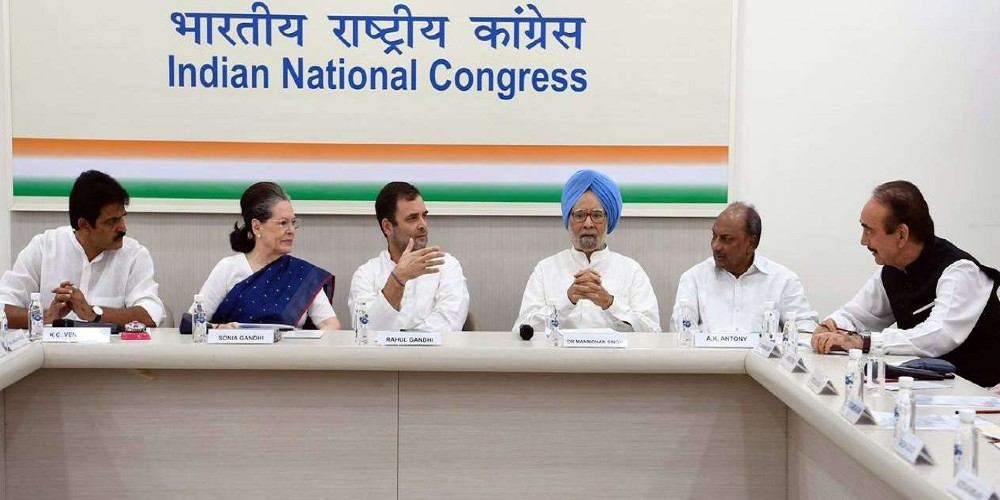 BY SAEED NAQVI
BY SAEED NAQVI
It is easy to over-analyze Mohali, Thimpu, UN General Assembly, Agra and arrive exactly where we had started. When it comes to Indo-Pak relations the devil, sometimes, is not in the detail. It is in the mind – on both sides.
The dossiers on Mumbai, the FBI’s role or non role, reference to Balochistan, Qasab, Aseemanand, etcetera etcetera can, all of them, singly or together, be tossed as the monkey wrench in the wheel. But these are not the reasons for relations being in disrepair.
These niggling details are the stuff that politics feeds on. To amplify the politics of pettiness is the function of the contemporary media in frenetic pursuit of ratings.
Statesmanship consists in rising above the petty politician and the panting, puffing media, to seize upon the moment, something Manmohan Singh is perfectly positioned for. I can see jaws drop: how can the Prime Minister be in a position for anything positive after the continuous mauling at the hands of the opposition through two sessions of Parliament? But we must not forget the Prime Minister too has seen the bruised and the wounded on the other side of the aisle. Who knows, Mohali may turn out to be his moment, provided he can plug his ears for insulation from that section of the media which aims to influence foreign policy by going ballistic, at deafening decibel levels.
Manmohan Singh must take a leaf from the Atal Behari Vajpayee book. Remember how he was stung at Kargil by Pervez Musharraf after his bus journey to Lahore. But he persisted. He was willing to go some distance even at Agra in July 2001; the hardliners in his own party pulled him back.
Remember Agra? Prevez Musharraf at the head of a large rectangular seating arrangement? Seated on three sides are God’s gift to Indian media, including the noisy one mentioned above. One by one they stand up to sing paeans of Musharraf in full throated melody. But, once the summit fails, they press “rewind” and over a period, “unsing” their songs, note by note.
But Agra or no Agra, knowing Vajpayee’s tenacity, I am sure he would soon have picked up the thread and resumed his peace commitment. But, alas, within two months 9/11 happened, providing grist to the hardline mill.
Then, in sequence, came the December 13 attack on Parliament, setting the scene for the February 2002 Gujarat pogrom. The hardliners were on top.
But did that stop Vajpayee from searching for the right opening?
Americans, by now deep in Iraq, began to lobby for Indian troops to administer northern Iraq, the Kurdish area. The armed forces salivated as did those of the BJP who liked the analogy of their looking after a “sector” of Iraq exactly as the “big powers” administered “sectors” of Berlin after the war. Yes, the establishment had all but bitten the bait.
Then on April 9, 2003, Vajpayee watched on TV Saddam Hussain’s statue being pulled down from the square at Palestine hotel. He kept his counsel.
On April 18, on a visit to Srinagar, Vajpayee the statesman, startled the world, most of all, his own party. Eyeball to eyeball confrontation between Indo-Pak armies notwithstanding, he offered his hand of peace to Pakistan. An awesome power has arisen, making regional quarrels a self defeating waste, he said. This led to the January 6, 2004 statement in Islamabad where Pakistan agreed that its territory would not be used against India. Manmohan Singh followed up and went further for peace than any Prime Minister. Then 26/11 happened.
The Vajpayee moment presents itself again. Manmohan can see an incoherent, inconsistent West groping for strategy in Libya. There never was and never will be any altruism in their moves. It is in our self interest to have the best of relations with each and every member of the currently quarreling West.
But it is in our paramount interest to compose our regional differences, to be able to cope with an unstable, unpredictable and a frightfully self seeking world. Sonia and Rahul Gandhi, by their very presence, provide him with support he needs. The two Home Secretaries have cleared some thicket. There will be road blocks, terror attacks. But a variation on the Biblical dictum says: he who is willing to lose, shall win!
(Saeed Naqvi is senior Indian journalist, television commentator, interviewer, and a Distinguished Fellow at Observer Research Foundation. Mr. Naqvi is also a mentor and a guest blogger with Canary Trap)
